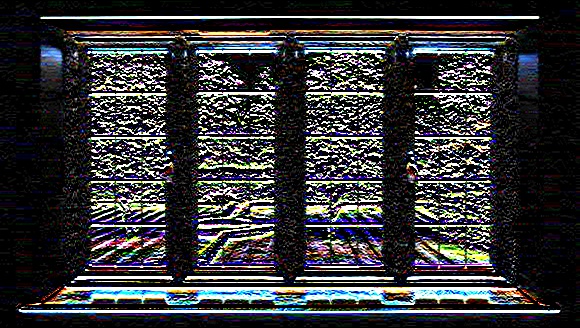
- OpenCV 教程
- OpenCV - 首页
- OpenCV - 概述
- OpenCV - 环境配置
- OpenCV - 存储图像
- OpenCV - 读取图像
- OpenCV - 写入图像
- OpenCV - 图形用户界面 (GUI)
- 绘图函数
- OpenCV - 绘制圆形
- OpenCV - 绘制直线
- OpenCV - 绘制矩形
- OpenCV - 绘制椭圆
- OpenCV - 绘制折线
- OpenCV - 绘制凸多边形
- OpenCV - 绘制带箭头的直线
- OpenCV - 添加文本
- 滤波
- OpenCV - 双边滤波
- OpenCV - 方框滤波
- OpenCV - 平方盒滤波
- OpenCV - Filter2D
- OpenCV - 膨胀
- OpenCV - 腐蚀
- OpenCV - 形态学操作
- OpenCV - 图像金字塔
- Sobel 导数
- OpenCV - Sobel 算子
- OpenCV - Scharr 算子
- 摄像头和人脸检测
- OpenCV - 使用摄像头
- OpenCV - 图片中的人脸检测
- 使用摄像头进行人脸检测
- OpenCV 有用资源
- OpenCV - 快速指南
- OpenCV - 有用资源
- OpenCV - 讨论
OpenCV - Scharr 算子
Scharr 算子也用于检测图像在水平和垂直方向上的二阶导数。可以使用 scharr() 方法对图像执行 Scharr 操作。以下是此方法的语法:
Scharr(src, dst, ddepth, dx, dy)
此方法接受以下参数:
src - 表示源(输入)图像的 Mat 类对象。
dst - 表示目标(输出)图像的 Mat 类对象。
ddepth - 表示图像深度的整数变量(-1)
dx - 表示 x 方向导数的整数变量。(0 或 1)
dy - 表示 y 方向导数的整数变量。(0 或 1)
示例
以下程序演示了如何将 Scharr 算子应用于给定图像。
import org.opencv.core.Core;
import org.opencv.core.Mat;
import org.opencv.imgcodecs.Imgcodecs;
import org.opencv.imgproc.Imgproc;
public class ScharrTest {
public static void main( String[] args ) {
// Loading the OpenCV core library
System.loadLibrary( Core.NATIVE_LIBRARY_NAME );
// Reading the Image from the file and storing it in to a Matrix object
String file ="E:/OpenCV/chap16/sobel_input.jpg";
Mat src = Imgcodecs.imread(file);
// Creating an empty matrix to store the result
Mat dst = new Mat();
// Applying Box Filter effect on the Image
Imgproc.Scharr(src, dst, Imgproc.CV_SCHARR, 0, 1);
// Writing the image
Imgcodecs.imwrite("E:/OpenCV/chap16/scharr_output.jpg", dst);
System.out.println("Image processed");
}
}
假设以上程序中指定的输入图像为 scharr_input.jpg。

输出
执行后,您将获得以下输出:
Image Processed
如果打开指定的路径,您可以观察到输出图像如下:

更多 Scharr 导数
通过向最后两个参数(dx 和 dy)(0 和 1 之间)传递不同的值,您将获得不同的输出:
// Applying scharr on the Image Imgproc.Scharr(src, dst, -1, 1, 1);
下表列出了 scharr() 方法的变量 dx 和 dy 的各种值及其相应的输出。
| X 方向导数 | Y 方向导数 | 输出 |
|---|---|---|
| 0 | 1 |  |
| 1 | 0 |  |
广告